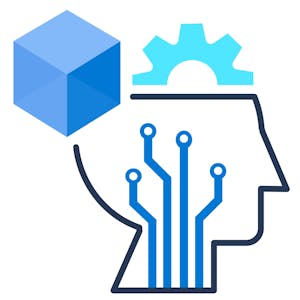Azure Machine Learning offers a comprehensive cloud platform for architecting, deploying, and managing machine learning models. This five-course program, designed by Microsoft, prepares data scientists to undertake the DP-100: Designing and Implementing a Data Science Solution on Azure certification exam.
Throughout this specialization, participants will harness their existing Python and machine learning knowledge to orchestrate data ingestion, model training and deployment, and solution monitoring in Microsoft Azure. The course syllabus covers:
This specialized program is tailored for data scientists possessing prior knowledge of Python and machine learning frameworks like Scikit-Learn, PyTorch, and Tensorflow. By the end of the program, participants will have the skills to manage Azure resources for machine learning, conduct experiments and train models, deploy and operationalize machine learning solutions, and implement responsible machine learning.
Certificate Available ✔
Get Started / More Info
This course entails six modules that cover a range of topics, including using the Azure Machine Learning Python SDK to train models, working with data and compute in Azure Machine Learning, orchestrating pipelines, deploying real-time machine learning services, deploying batch inference pipelines, tuning hyperparameters, selecting models, protecting sensitive data, and monitoring machine learning deployments.
Module 1 introduces participants to using the Azure Machine Learning SDK to train models, covering topics such as creating workspaces, running experiments, and registering models. Participants will also learn how to manage Azure resources for machine learning and run training scripts.
Module 2 focuses on working with data and compute in Azure Machine Learning. Participants will learn about datastores, environments, compute targets, and datasets. The module also covers creating and using environments and compute targets.
Module 3 delves into orchestrating pipelines and deploying real-time machine learning services with Azure Machine Learning. Topics include troubleshooting service deployment, reusing pipeline steps, publishing pipelines, and deploying and consuming real-time inferencing services.
Module 4 covers deploying batch inference pipelines and tuning hyperparameters with Azure Machine Learning. Participants will learn to create and publish batch inference pipelines, configure sampling, and run hyperparameter tuning experiments.
Module 5 focuses on selecting models and protecting sensitive data. Participants will explore automated machine learning tasks and algorithms, understand differential privacy, configure data privacy parameters, and create explanations for interpreting models.
Module 6 revolves around monitoring machine learning deployments. Participants will consider model fairness, analyze and mitigate unfairness using Fairlearn, enable Application Insights, and create data drift monitors.
IBM AI Foundations for Business provides business leaders with an understanding of AI-based solutions for business challenges.
Google Cloud Big Data and Machine Learning Fundamentals is a comprehensive course that introduces the key products and services for building big data pipelines and...
Modèles de séquence covers advanced techniques in sequence modeling for natural language, audio, and other sequence data. Dive into recurrent neural networks,...
Unsupervised Machine Learning for Customer Market Segmentation